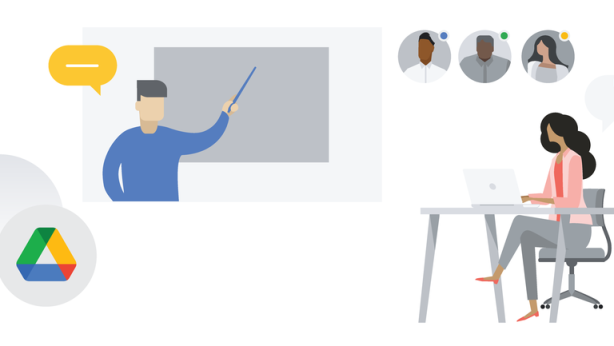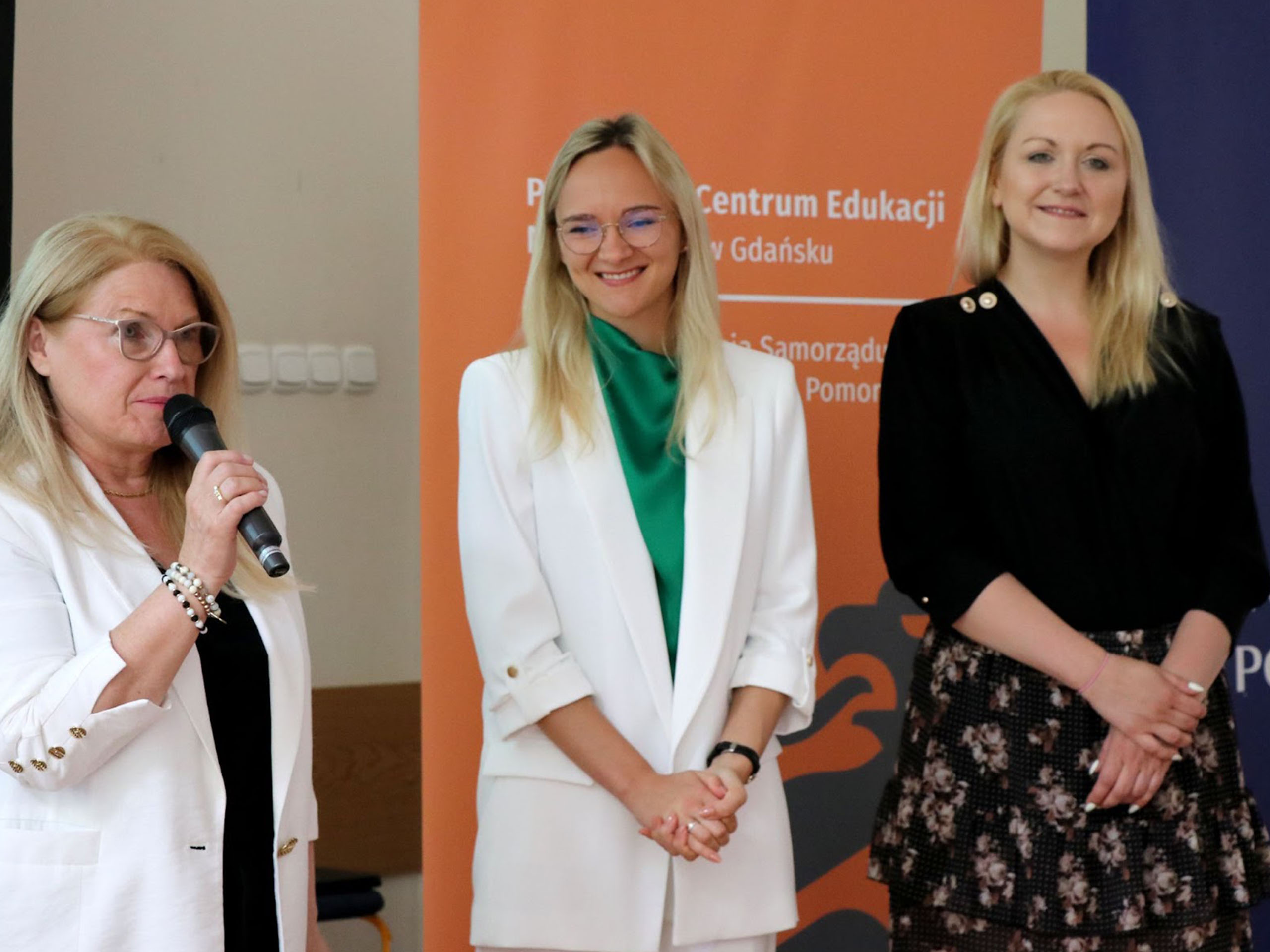
Gdansk Conference 2023: Empowering Education through Innovation and Collaboration
Two weeks ago we at CCT Poland in partnership with Pomorskie Centrum Edukacji Nauczycieli w Gdańsku organised a conference in Gdansk. Many educators and experts in the field of education took part in the educational conference where names such as Dariusz Rzucidło, Mariia Ruban, Milena Wojciechowska, Anna Kościukiewicz-Jabłońska, and Igor Wasiewicz-Pawlaczyk took part.
The conference provided insightful exploration of innovative solutions and strategies in terms of effective school management and creating better educational experiences.
The first guest speaker at the conference was Dariusz Rzucidło who shared his experience related to data security and how Workspace helps him to keep his school safe. He described what are the cyber risks that can affect the school and how Google solutions can help to minimise them. Thanks to additional security features, the school can minimise the risk of hacking, loss of sensitive data, or increase the level of control over how students use technology at school, etc.
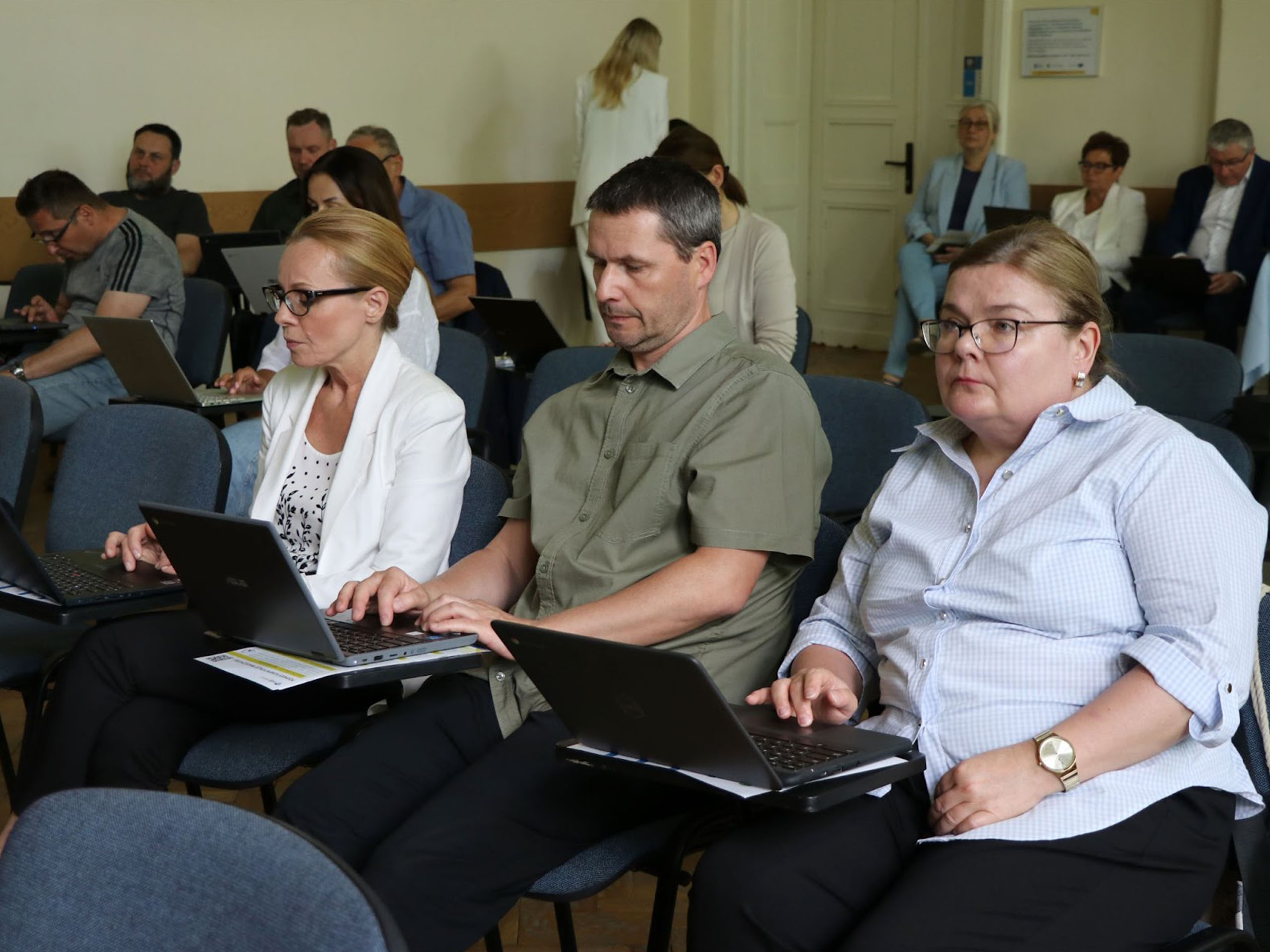
Mariia Ruban was next with a speech that left attendees eager for more. Ms Ruban spoke about the Albus project and its implementation in the two schools part of it. How did implementing such a project bring remarkable results to both schools? The Albus project drastically improved the educational outcomes of the two schools. Through access to additional teaching resources and support from educational experts, participation in the project enabled teachers to create a more engaging and effective learning environment. This, in turn, resulted in improved student performance and better educational outcomes.
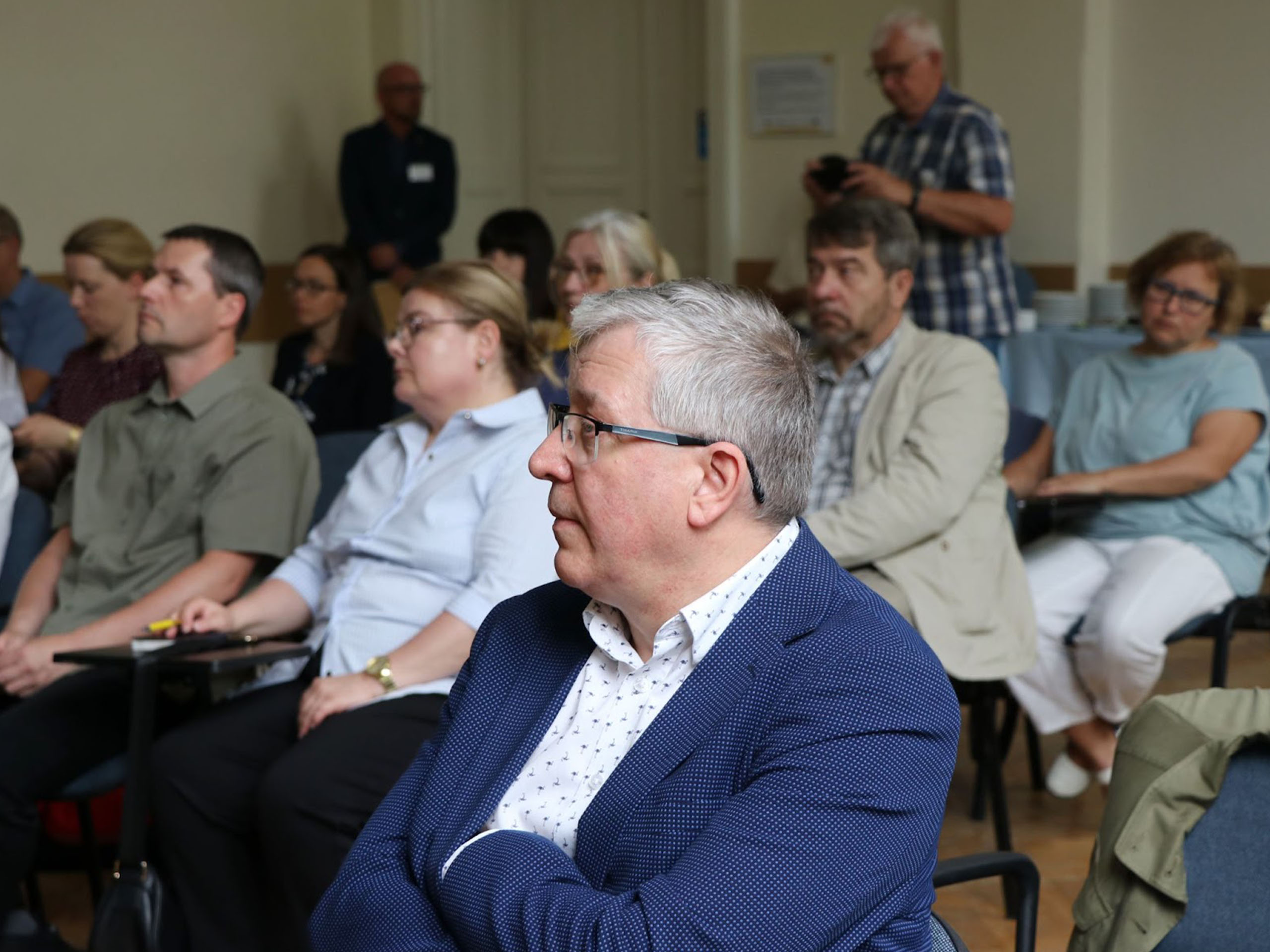
Ms. Milena Wojciechowska participated in the conference as an official representative of Google and spoke about the company’s involvement in educational initiatives. She also discussed their plans for the future and how Google is committed to supporting the education market in Poland. With her speech, Mrs. Wojciechowska encouraged the audience to create and run initiatives to improve the quality of social life. At the end of the lecture, she also reminded about the value of cooperation and its effectiveness.
Of all the presentations, the audience was most impressed by the presentation of Mrs. Anna Kościukiewicz-Jabłońska, who is the co-founder and director of the bilingual school “Naja Szkóła” in Wejherowo. Mrs. Kościukiewicz-Jabłońska talked about her experience in searching for the best solution, thanks to which she could improve the school management system and increase the effectiveness of the teaching process in her school. In the next part of her speech, the headmaster of Naja Szkòła talked about how the use of the Google Workspace platform in combination with Chromebooks helped her achieve her goals. Ms Anna spoke about how those tools have completely changed her school by providing an easy system and swift solution for education, especially during the pandemic. This example showed how widely technology can influence education and adapt to the situation in order to improve educational processes.
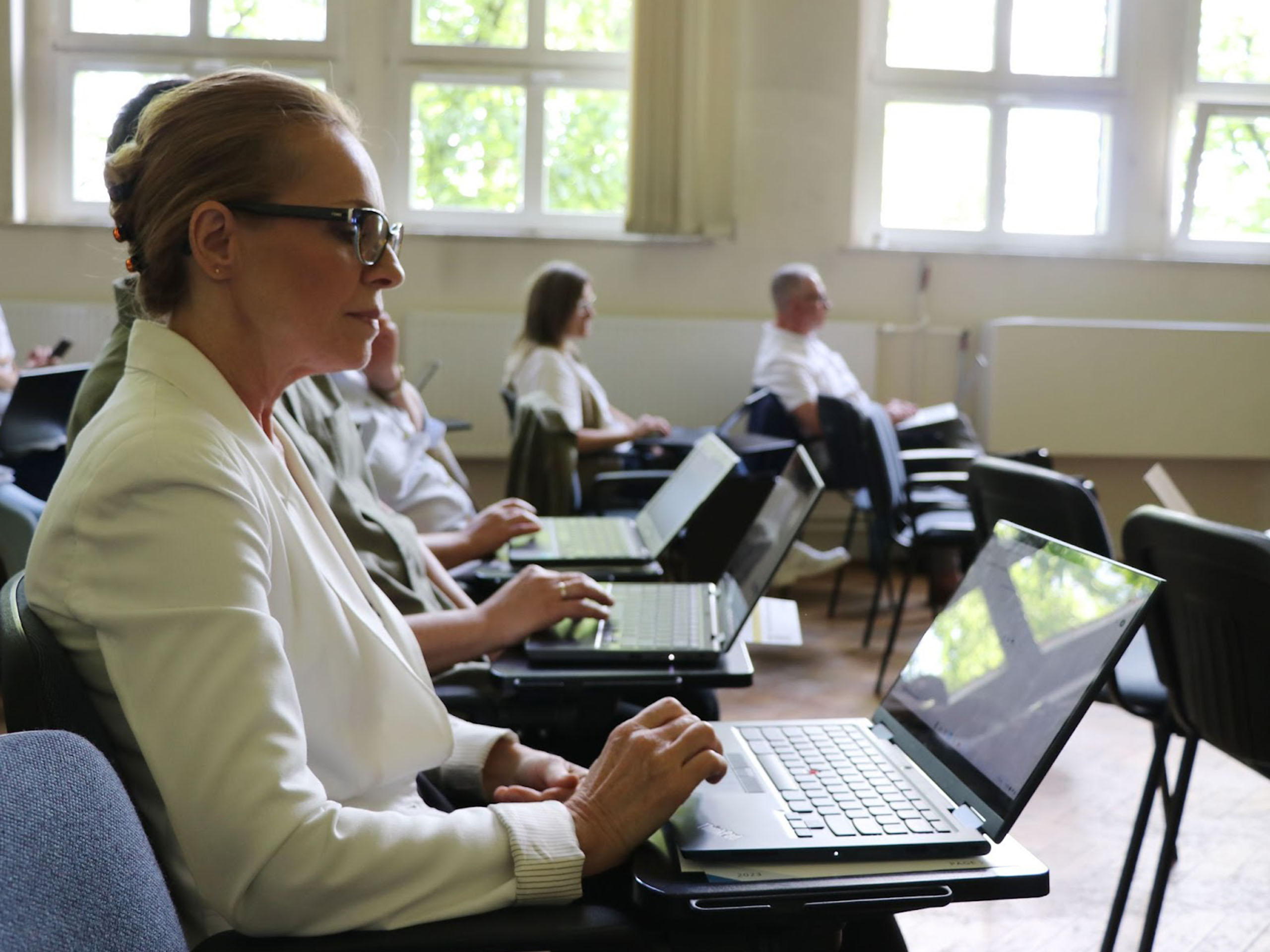
Igor Wasiewicz-Pawlaczyk’s presentation delved into the practical aspects of implementing the 1:1 model in schools. Attendees gained valuable insights into seamlessly integrating technology into curricula, benefiting from personalized learning experiences. Igor’s talk acted as a guide for educators keen on exploring the vast benefits of this innovative approach.
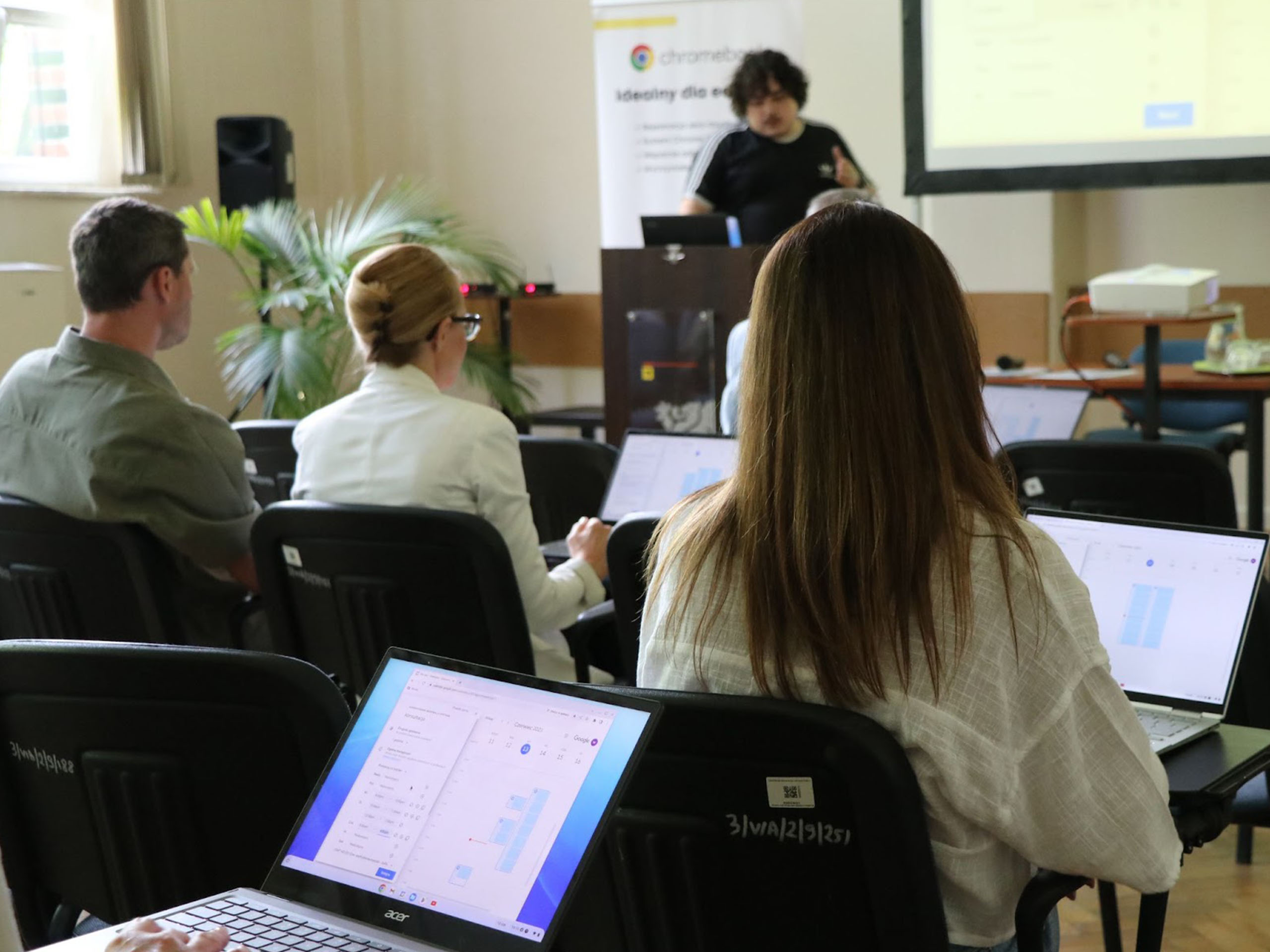
The conference was open where discussion and collaboration were nurtured. The attendees showed exemplary engagement and enthusiasm for their shared goal of advancing education in Poland. The guest lecturers left space for discussion making the event a great opportunity for networking. This in the end left everyone inspired and motivated for positive changes in their respective educational institutions for a brighter educational future where technology plays a crucial role.
Teachers, professionals, and visionaries who pushed the boundaries of educational development and improvement attended the conference in Gdansk. We are optimistic about the future of education in Poland as we think back about the conference. The presenters’ insightful comments and the audience’s fervent participation serve as an impetus for radical adjustments to instructional strategies. Together, we can advance the educational system, embrace innovation, and guarantee a better future for future generations.


